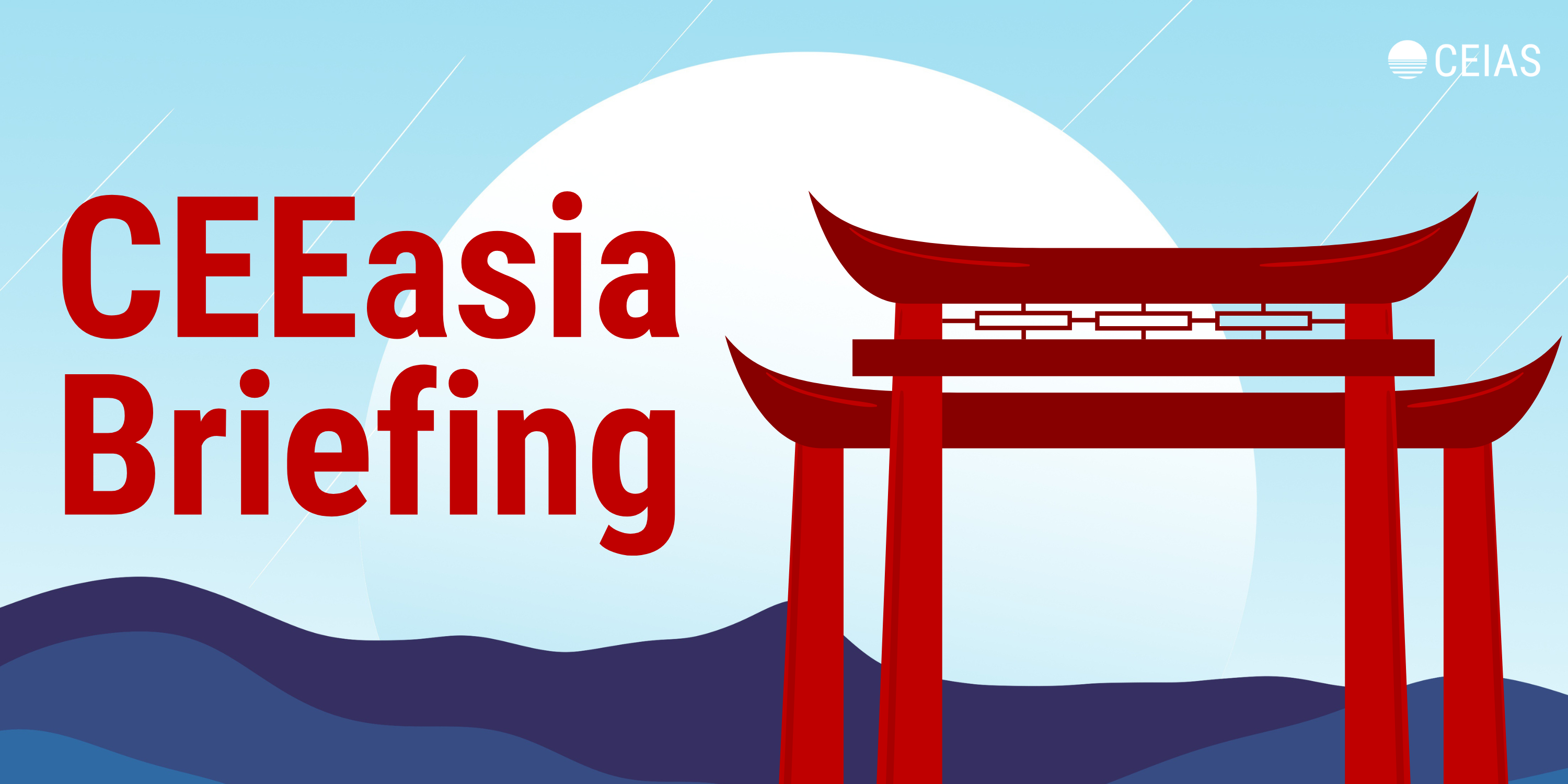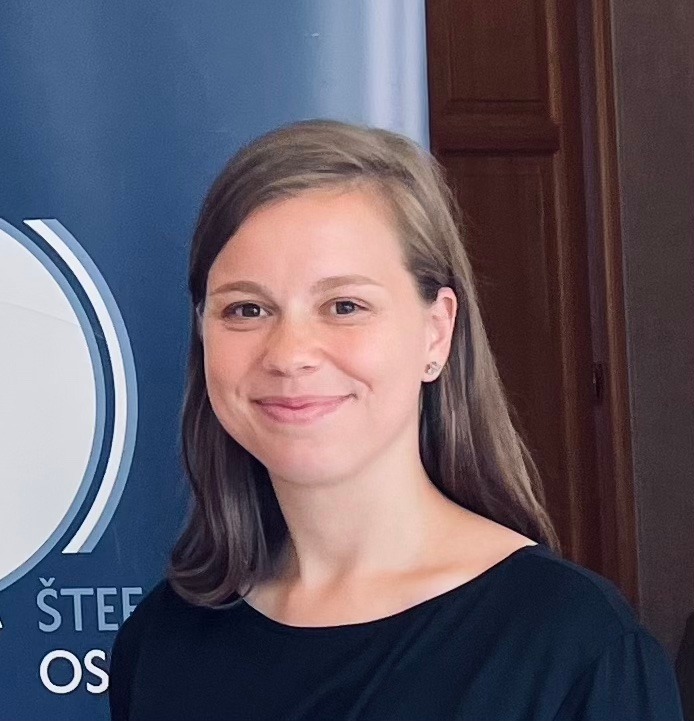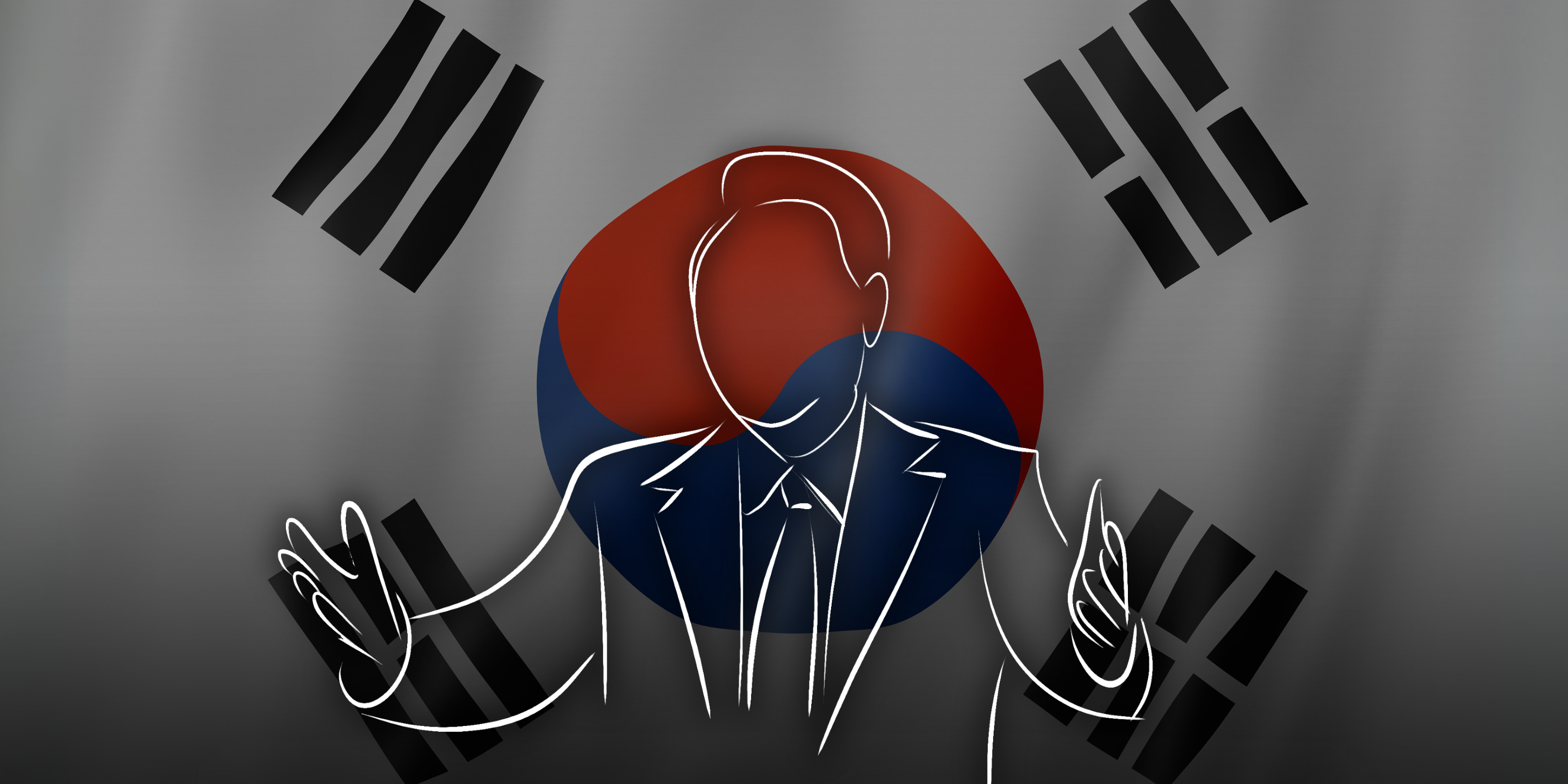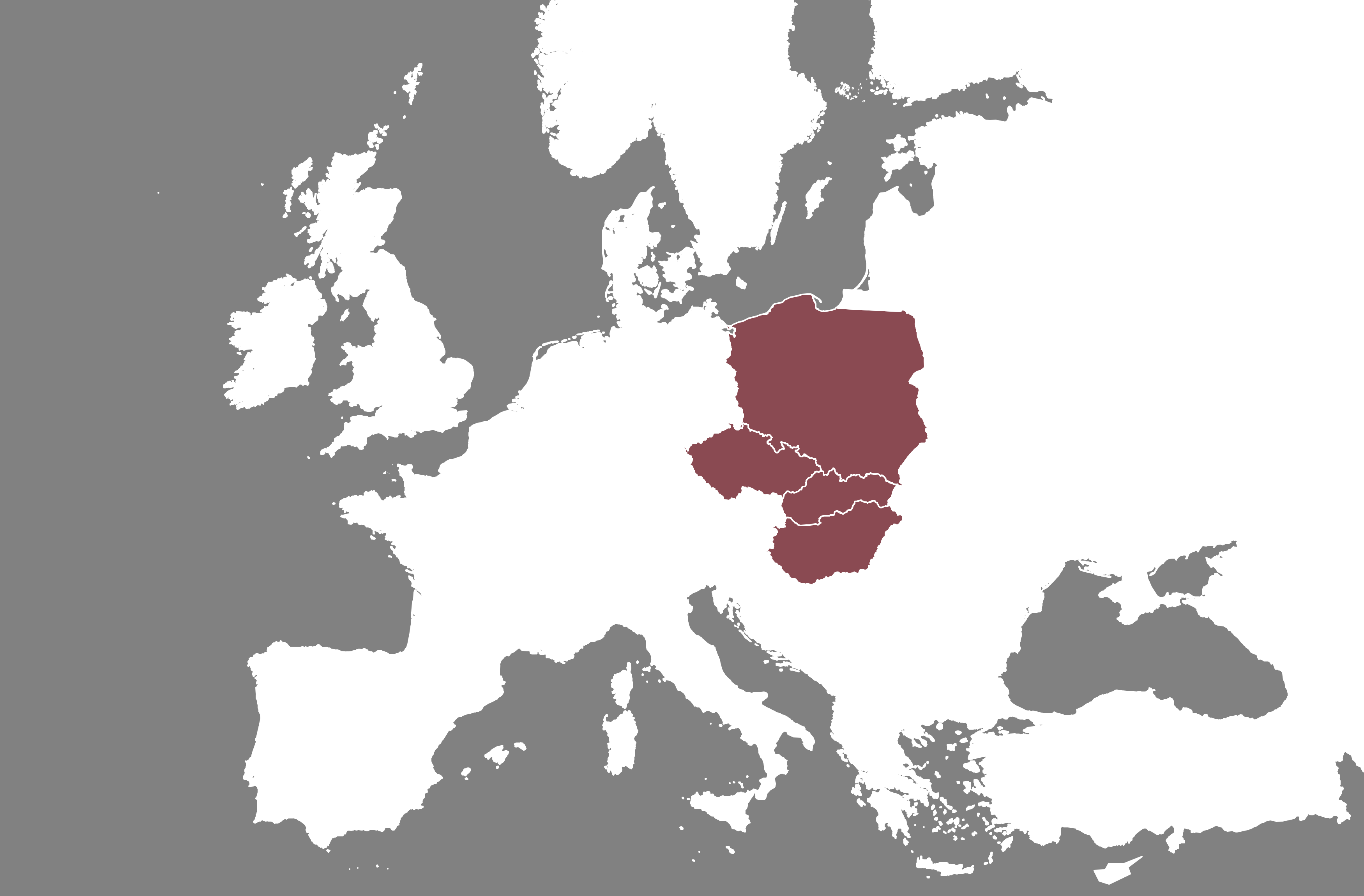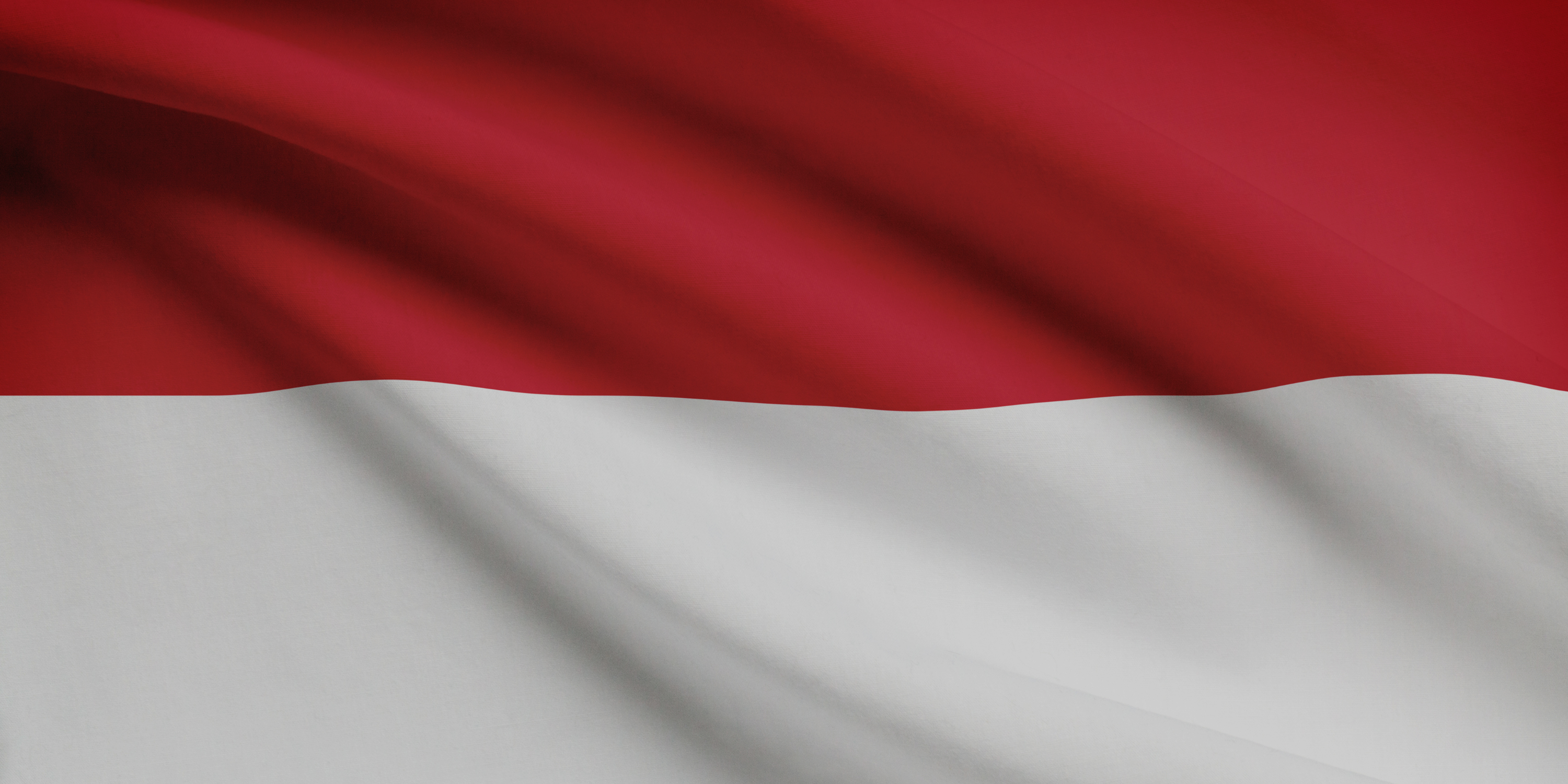Welcome to the 63rd issue of the CEEasia Briefing.
In this issue, we dissect the following topics:
- EU-China trade relations
- Deepening ties between Mongolia and Czechia
- South Korea – Poland cooperation
- Slovak delegation in India
If you like what you see, please forward this message to your friends and colleagues who can subscribe here.
Do you need to know more about East Asia? Don’t hesitate to shoot us a message about custom analysis tailored to your needs.
1. EU-China Trade ties: Maroš Šefčovič in China
What’s going on?… European Commissioner for Trade and Economic Security Maroš Šefčovič visited Beijing for the first time in the new Commission to discuss EU-China trade relations with senior Chinese officials. The aim of the visit was to address systemic trade issues and rebalance the trade and investment ties at a time when Donald Trump has adopted a more confrontational stance towards Europe.
Going deeper… Before traveling to Beijing, Šefčovič met with US officials in Washington to ease transatlantic tensions over proposed retaliatory tariffs. Shortly after this visit, President Trump announced a 25% tariff on car imports. The move is expected to particularly impact European automakers, especially German exporters dependent on the US market.
Amid this… Šefčovič met with Chinese Vice Premier He Lifeng, Commerce Minister Wang Wentao, and Customs Minister Sun Meijun on March 27-28, emphasizing the need to tangibly rebalance EU-China trade and investment relations. According to the EU’s official readout, discussions focused on long-standing systemic issues, market access barriers for European companies, and investment opportunities in the electric vehicle supply chain.
Moreover… Šefčovič’s discussions signal a primary focus on economic matters. Unlike his predecessor as trade commissioner, Valdis Dombrovskis, who sought to keep Ukraine at the top of every agenda during his meetings with Chinese officials, Šefčovič did not indicate that he discussed Chinese support for Russia during his visit to Beijing.
Interestingly… a Chinese readout, released a couple of days before the EU’s, framed the Šefčovič statements slightly more favorably to China. It highlighted the EU’s willingness to celebrate 50 years of diplomatic relations by ‘deepening trade and investment cooperation.’ This seems to be directed at changing stance by Šefčovič who seems to be adapting his views similarly to Ursula von der Leyen. Von der Leyen had traditionally taken a tough stance against China but has recently softened her tone, stressing that the EU could expand trade relations with Beijing and even reach new agreements.
This means… Beijing views Šefčovič’s visit as an opportunity to deepen ties with Brussels, as reflected in Chinese state media’s positive coverage. However, European skepticism persists due to concerns over China’s industrial overcapacities and state subsidies, which threaten the competitiveness of EU industries. The extent to which this visit will lead to concrete policy shifts remains uncertain, particularly as the EU redefines its strategic approach under the European Competitiveness Compass, which aims to reduce excessive dependencies, increase security, and close the innovation gap with the US and China.
Still… The visit highlights the EU’s attempt to react to Trump’s administration in navigating its economic relationship with China. With uncertain security guarantees and the potential weakening of strategic partnerships under Donald Trump, the EU faces increasing pressure to choose between aligning with Washington’s hawkish China policy or pursuing a more pragmatic economic approach with Beijing.
2. Deepening ties between Mongolia and Czechia
What’s going on? On the 75th anniversary of diplomatic relations between Mongolia and the Czech Republic, Mongolian President Khürelsükh Ukhnaa and Prime Minister Oyun-Erdene Luvsannamsrai visited Prague, where they met with high-ranking Czech officials. The two countries elevated their bilateral ties to a Comprehensive Partnership and signed several key agreements focusing on cooperation in education, agriculture, environmental protection, and security.
Going deeper… During the visit, President Khürelsükh met with Czech President Petr Pavel, Prime Minister Petr Fiala, Foreign Minister Jan Lipavský, and other senior officials. Meanwhile, Lipavský held talks with his Mongolian counterpart about cooperation in trade and investment, environmental protection, education, science, and geopolitics.
The two sides also committed to strengthening cultural exchange. Specifically in the area of education, expanding student exchange programs under Mongolia’s “President’s Scholar-2100” initiative. Since Czechia is home to approximately 13,000 Mongolians, the largest Mongolian community within the EU, the two sides pledged to work more closely to protect the rights and interests of the residents in Czechia. In the realm of security, both countries signed a Police Cooperation Agreement, aimed at improving criminology expertise, combating organized crime, and conducting joint training programs.
This means… The visit underlines the Czech Republic’s long-standing diplomatic relations with Mongolia, which date back to 1950. Also, with only two neighbors—China and Russia—Mongolia actively seeks to balance its foreign relations with European nations. Through concrete projects with Czechia, Mongolia works to diversify its economic dependencies on these two dominant powers. This is seen in historical collaborations such as the joint geological efforts that led to the discovery of the Erdenet mine (13.5% of Mongolia’s GDP) and the construction of Mongolia’s first and largest hospital.
3. South Korea and Poland sign security agreement
What’s going on? South Korea and Poland signed an action plan in early March outlining their cooperation in politics, economic, defense and culture through 2028.
Going deeper… Poland and South Korea, strategic defense partners since 2013, have strengthened their transregional cooperation between Europe and the Asia-Pacific. Their new agreement enhances collaboration in defense, cybersecurity, and technology exchange, while also deepening economic interdependence in energy security. This partnership aims to address the Ukraine conflict, especially in light of North Korea’s involvement. Additionally, South Korea has pledged over $2 billion to support Ukraine’s reconstruction, adding to its previous $400 million in aid.
This means… The agreement strengthens transregional cooperation between NATO’s eastern front and the Indo-Pacific, enhancing the global security response by uniting European and Asian democracies. It also highlights South Korea’s growing role in international defense as a major arms supplier.
Explore our new Central Europe-East Asia EV Nexus Tracker.
4. Slovak delegation in India
What’s going on? Slovak Minister of Foreign Affairs Juraj Blanar and Minister of Finance Ladislav Kamenicky led a political and business delegation on a four-day visit to India starting in March. The visit, taking place alongside India’s annual Raisina Dialogue 2025, resulted in the signing of several memoranda of understanding and the re-opening of the Honorary Consulate of the Slovak Republic in Kolkata. Later in March, another delegation, led by the Ministry of Education and consisting of representatives from Slovak universities, participated in an international academic fair in Delhi.
Going deeper… The delegation headed by Ministers Blanar and Kamenicky took part in various events such as the India-Europe Business Exchange, Raisina Dialogue 2025—an annual flagship geopolitical conference organized by India’s Ministry of External Affairs and the Observer Research Foundation—as well as the first annual Slovak-Indian Business Forum in Kolkata.
The Slovak business delegation consisted of 32 participants representing 24 business entities from sectors such as defense, construction and engineering, information and communication technologies, and food industries. The visit facilitated meetings with over 80 Indian companies to explore new partnerships and strengthen trade relations and technological collaboration. The two sides also discussed the EU-India Free Trade Agreement, which remains under negotiation and would ease trade currently burdened by high tariffs—particularly in the automotive sector.
Moreover… Beyond trade, the visit emphasized Slovakia’s interest in India’s growing technology and innovation sector. The mission also laid the groundwork for future investment discussions, particularly in areas like energy storage, where Slovak company InoBat is partnering with Indian investors on battery production.
In addition… Slovakia’s presence in India was reinforced through its diplomatic expansion with the re-opening of the Honorary Consulate in Kolkata, which had ceased operations in 2020 due to the passing of the former consul. The new consul, Vivek Lohia — a director of the Indian company Jupiter Wagons which partners with the Slovak firm Tatravagónka Poprad — was appointed in March 2024, with the consulate officially inaugurated in March. Representatives of three Slovak universities were also part of the delegation, paving the way for another visit led by the Slovak Ministry of Education and representatives of 14 Slovak universities at the international academic fair in Delhi from March 24 to 28.
This means… Slovakia is beginning to place greater emphasis on India and is on track to deepen bilateral ties across multiple sectors. This is further demonstrated by the upcoming visit of India’s president along with a delegation of various Indian businesses planned for early April. The potential for cooperation is vast and, until now, largely untapped. To ensure continued progress, Slovakia’s diplomatic corps should remain highly engaged and proactive, particularly through the Ministry’s headquarters in Bratislava.
Quick takes on CEEasia developments
CHINA | The Slovak Minister of Transport Jozef Ráž held talks with representatives of the Chi Fu, a Chinese investment fund, to discuss possibilities of Chinese investment in the Slovak Post Office and Bratislava Airport.
CHINA | The European Commission is investigating whether China provided unfair subsidies to a BYD electric car plant in Hungary, as part of a probe into growing economic ties between Beijing and Hungarian Prime Minister Viktor Orbán.
CHINA | The Czech government blocked Chinese company Emposat’s investment in a satellite ground station in South Moravia, citing security concerns over potential espionage. This marks Czechia’s first rejection of foreign investment.
VIETNAM | Vietnam has extended its visa waiver policy, allowing tourists from the Czech Republic, Poland, and Switzerland to visit visa-free for up to 45 days, starting March 15, 2025. This move aims to boost tourism and strengthen cultural and economic ties.
VIETNAM | Vietnamese Ambassador to Hungary Bui Le Thai visited Zalaegerszeg and met with Mayor Zoltan Balaicz to discuss strengthening cultural ties. The talks focused on organizing events introducing Vietnamese culture and history, including a symposium on Ho Chi Minh, whose 1976 statue in Zalaegerszeg marks strong historical ties between Budapest and Hanoi.
THE PHILIPPINES / INDONESIA | Hungary, which is facing a significant labor shortage, recently engaged in discussions with Manila and Jakarta regarding promotion of recruitment and ensuring proper labor regulations – especially migrant worker protection.

